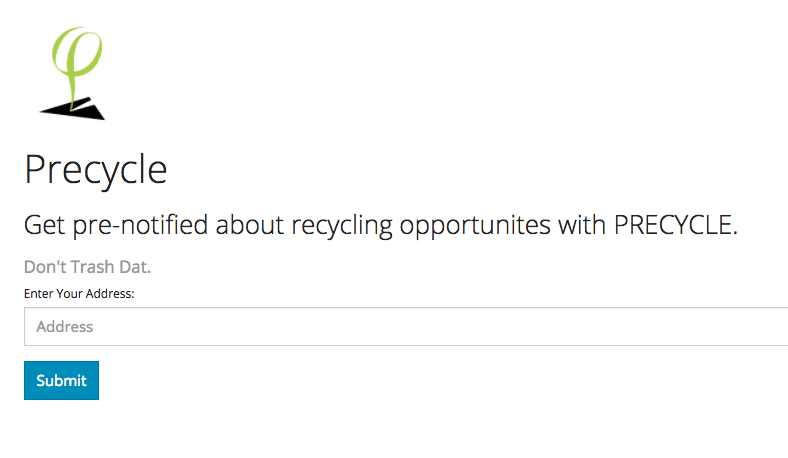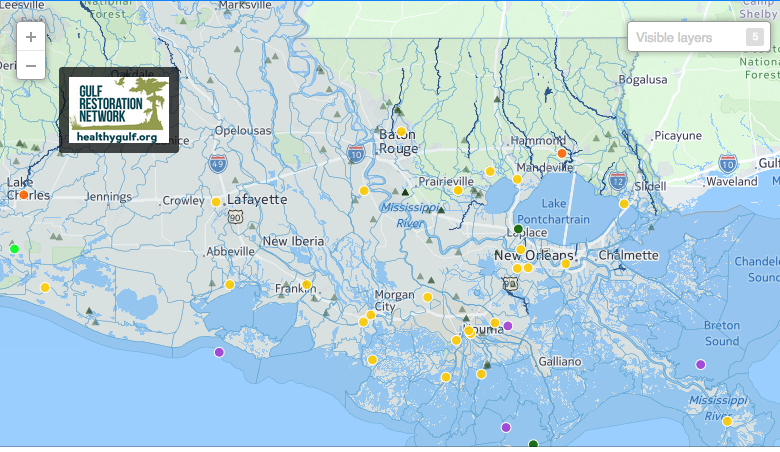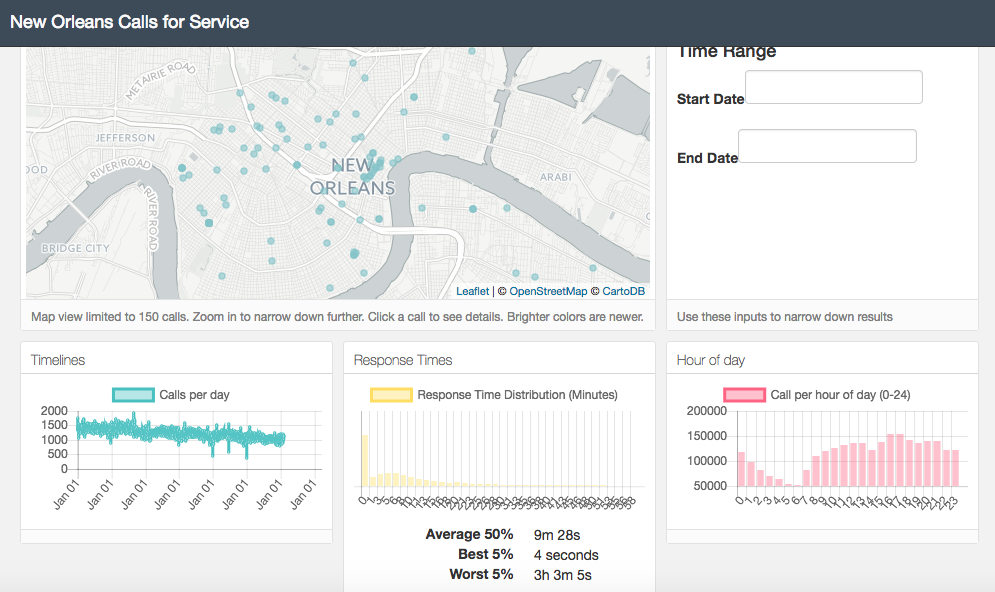New Orleans kicks off hackathon series
By Samantha Sunne
Hacks/Hackers New Orleans held its first hackathon this week, digging into dirty assessment data, partial wetlands maps, unanswered recycling questions and other problems just waiting to be solved. The organizers partnered with ONA, which also opened a New Orleans group last year. The HH Nola group has grown to almost 200 members since it launched about six months ago.
“We were fortunate to have so many talented participants whose interests converged around issues important to our community,” organizer Troy Thibodeaux said. “Each group came away with some wonderful progress to show for the day, and the call for a follow-up was pretty much unanimous.”
The event drew about 30 people, congregating around topics like public safety and real estate data. The final projects were:

You’d think a town famous for drinking would know how to recycle, but no. There’s widespread confusion about what you can recycle and where – or if you can even recycle at all. A team put together a demo app called Precycle that informs users of their recycling items and days, and even offers automated reminders. The team planned to expand the app to include compost.
The Gulf Restoration Network, an environmental nonprofit, has been trying to analyze wetlands use permits, but struggling to wrangle with some data stored in levelDB. One attendee wrote a parser, and over the course of the day they managed to get the data into a usable format. Next, the group will use it to populate a map of wetlands uses in the Gulf area. Users can see who owns the permit, as well as links to the document itself and deadlines for adding public comment. The current map, seen here, will be expanded by end of 2018 to include Texas and Florida.

Another map produced at the hackathon was of “firearm discharge” incidents in New Orleans, one of the most crime-ridden cities in the U.S. The team wanted to check for a correlation between firearm discharges and neighborhoods, and surprisingly, the tourist-heavy French Quarter was one of the densest areas of the map. In the future, a teammember said, they hope to make the map automatically update.
Crime data is always some of the most popular data around, for nerds and average citizens alike. Somewhat similar to the guns team, the 911 team put together a visualization dashboard, including a map of calls for service. The tool uses an API to automatically pull data from the New Orleans open data portal. It can be downloaded as HTML and reused for other projects – just replace the data source!

The local CfA brigade, Code for New Orleans, has been interested in 311 data for a while, and found some brothers in arms at the hackathon. They ended up creating a survey to get feedback about the 311 system and started investigating why the city doesn’t already have an app for submitting issues into the 311 system. Building a mobile app was out of scope for this particular hackathon, but may be a project to tackle in the future.
This team didn’t end up with a friendly public-facing app, sadly, but they certainly tried their hardest. Several intrepid hackers struggled to clean a monster set of 10 years of state assessment data, getting it significantly closer to usability. At least now the data can accessed via several CSVs, rather than writing code. A local reporter expressed interest in using it for a story, and in fact, assessment data was the most popular topic among all at the hackathon.
The assessment data is one project that is likely to be continued at another hackathon at a later date. Several attendees expressed interest in a series of civic hacking hackathons, something of a rare occurrence in New Orleans. More hacking and problem-solving to come!



